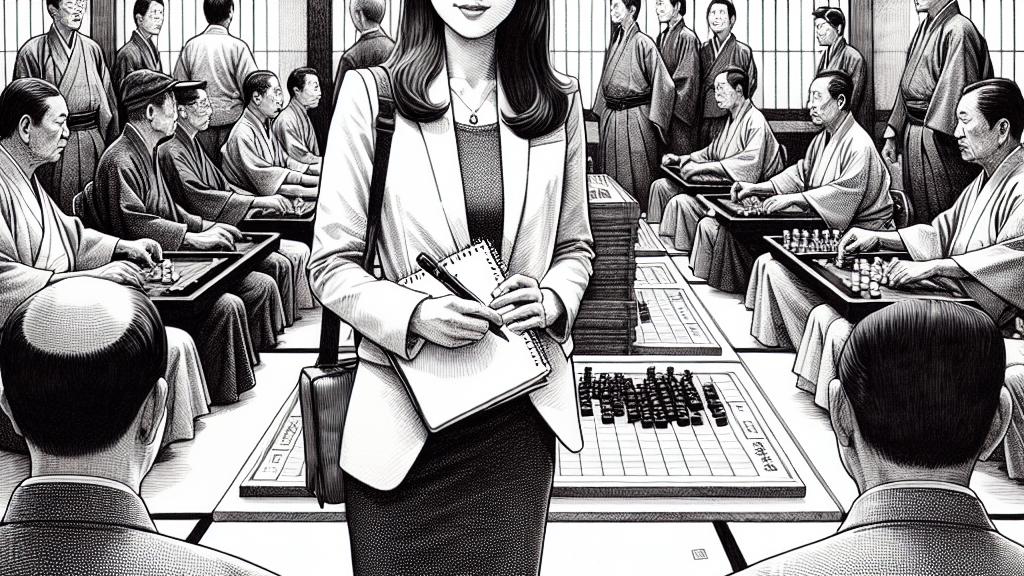The Real World of Shogi Encountered by a New Female Reporter
Overview
- Chronicles the bold journeys of female reporters breaking barriers in the male-dominated Shogi scene.
- Highlights the challenges, triumphs, and personal growth that define their experiences in this niche field.
- Unveils the relatable and down-to-earth aspects of celebrated Shogi players, showcasing the humanity behind their fame.

Entering the Male-Dominated Arena of Shogi
In Japan, the world of Shogi is often perceived as a bastion of male dominance, where both players and reporters are predominantly men. However, for female journalists like Sekko Hiroko and Seto Kanon, the journey into this competitive realm is both challenging and enriching. When Sekko, who previously covered local politics, was unexpectedly tasked with Shogi reporting, her initial reaction was a whirlwind of disbelief and self-doubt. Such turbulent emotions are all too familiar for women stepping into traditionally male fields. Yet, this unforeseen career pivot not only exposed the biases that persist in the industry but also ignited a spark of resilience within her, reminding readers of the potential that can emerge from unexpected circumstances.
Navigating the Intricacies of Shogi Journalism
Meanwhile, Seto Kanon found herself in a similar boat, taking over the Shogi beat after a seasoned colleague moved to a different publication. As they both journeyed deeper into Shogi, they faced a steep learning curve—one filled with moments of clarity and confusion alike. For example, understanding complex moves and unraveling the rich history that surrounds the game transformed their perspective. They learned to appreciate not just the rules, but the artistry and strategy that define each match. This transformative experience allowed both reporters to redefine the narratives surrounding gender roles in journalism. Through perseverance and passion, they embraced their identities as Shogi reporters, gradually dismantling stereotypes and encouraging other women to pursue their dreams.
The Surprising Humanity of Shogi Champions
Throughout their experiences, Sekko and Seto came to realize that even the most revered Shogi champions, such as Akira Watanabe, are remarkably down-to-earth. Initially, they viewed these players as distant icons, but moments of unexpected connection, like Watanabe's casual visit to the press room to charge his phone, illuminated their authenticity. Such encounters broke down the barriers between celebrity and ordinary interactions, revealing their humility and relatability. This revelation not only enriched the reporters' understanding of the Shogi community but also underscored that behind every great achievement lies a shared humanity. The realization that celebrated figures are just as human as anyone else offers valuable lessons about connection and empathy, making their journey not just a professional endeavor, but a deeply personal one.

Loading...